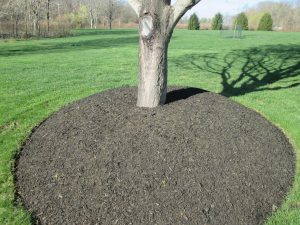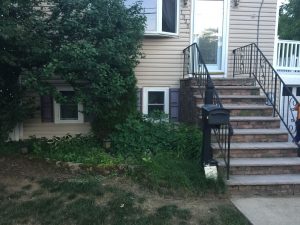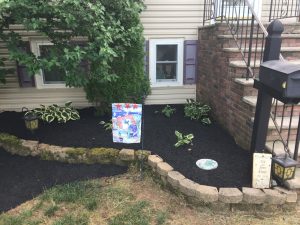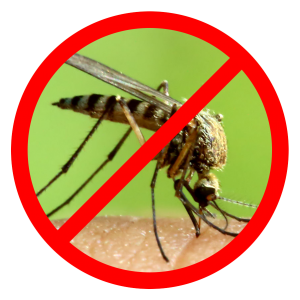Benefits of Annual Mulching

It always seems like the list of things we need to do around the house keeps on growing, especially when it comes to maintaining the lawn and landscape. One of the items on the list should be mulching, it not only makes your landscape look great, but it also provides other benefits that can save you some time in the long run.
Increased property appeal
One of the obvious benefits to mulching has to do with property value. We have all heard that a nice landscape adds curb appeal and potentially increase the value of your property. One key step to having a nice landscape is putting down mulch in your landscape beds. When done correctly, it can make a big difference with the overall look of your property.
Temperature control
Your landscape plants will also benefit from mulch, assuming it is done correctly (more on this later). Mulch can help moderate temperatures, keeping the soil warm in the winter and cool in the summer. During the winter, it can also help reduce freeze damage on shallow rooted plants. In the summer, it retains moisture in the soil for plants by reducing evaporation. As time goes on, the mulch will decompose and replenish nutrients into the soil that will become available to your landscape plants.
Minimizing weed growth
Now we know that mulching can make our property look good and provide a lot of benefits to our landscape plants, let’s discuss how it can save you time. If you have ever looked at a landscape bed that was not mulched, I am sure you noticed a plethora of weeds. Trying to keep up with weeding a landscape bed that lacks mulch can become almost impossible unless you plan on spending countless hours each week. Having a properly mulched landscape bed will minimize the amount of weed growth and save you a lot of time from having to pull or treat them. I am going to repeat that part: it will minimize weed growth, not eliminate it! You will always have to pull or treat some weeds, but there will be a lot more if you skip mulching your landscape beds regularly.
When to mulch
Now that we understand the benefits, let’s talk about timing. Spring is one of the best times to apply your new mulch, especially since a lot of weeds become active after the snow melts and soil temperatures rise. Spring is also a great time to refresh the mulch color, so it looks clean, crisp, and polished for the rest of the season. If you already have a lot of weeds in your landscape beds, just be sure to remove the weeds before putting the new mulch down. If you are too busy in the spring and cannot get it done, that is ok, you can still mulch later in the year.
Should you remove what is there?
Should I remove the old mulch first or just put new mulch on top of the old mulch? That is a great question and there are two schools of thought on that. You want to keep the mulch level at about 2-3 inches. Mulch that is too thick will decrease water and air circulation to the roots thereby suffocating the plants; however, if your mulch layer is thin, adding mulch will help increase the depth of the broken-down mulch and improve the landscape.
If your old mulch is broken down but adding new fresh mulch will put you over the 2-3-inch-thick mark, then we recommend removing the old mulch and replacing it. Also, if you’ve continued to add mulch over the past four or five years, we recommend removing the old mulch and starting over.
Avoid piling mulch up around the trunk of woody plants creating a “mulch volcano.” A mulch volcano piled up against the tree trunk will cause the bark to stay wet and create disease issues which will lead to decay. It is important to remember “mulch volcanos” can happen to landscape plants with low branches too, like boxwoods and laurels. When mulching around these plants, make sure you pull out the existing mulch from around the base of the plant prior to adding new mulch so you do not pile mulch on the side branches.

This picture demonstrates what a tree looks like with too much mulch.
When mulching around larger plants you should leave the root flares exposed by leaving a few inches of space between the bark of the plant and the mulch. This will help improve the plant’s ability to exchange gas. For more on proper mulching and photos of what to avoid, please click here to see our previous mulching blog.
Conclusion
Mulching can add value to your home and when done properly, can be beneficial to your plants. If you have any questions about mulching and are in our service area, please give our office a call at 908-281-7888.






